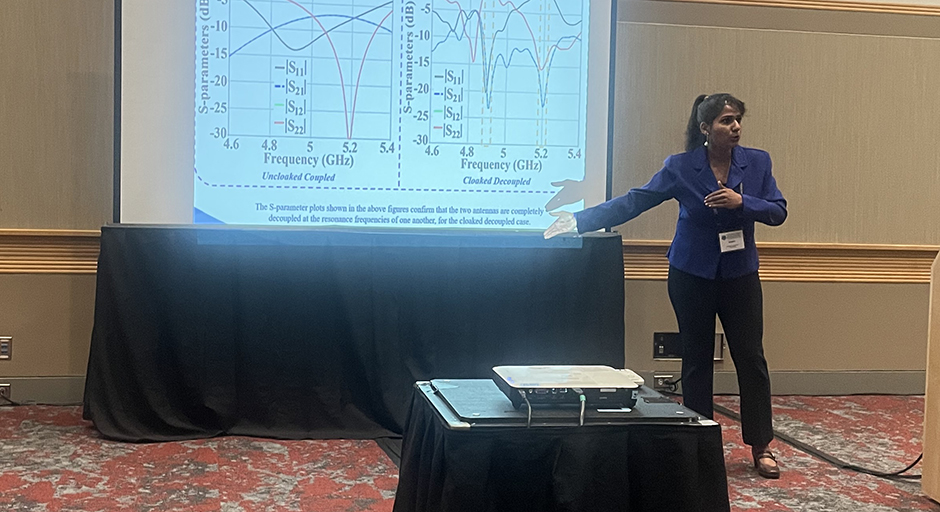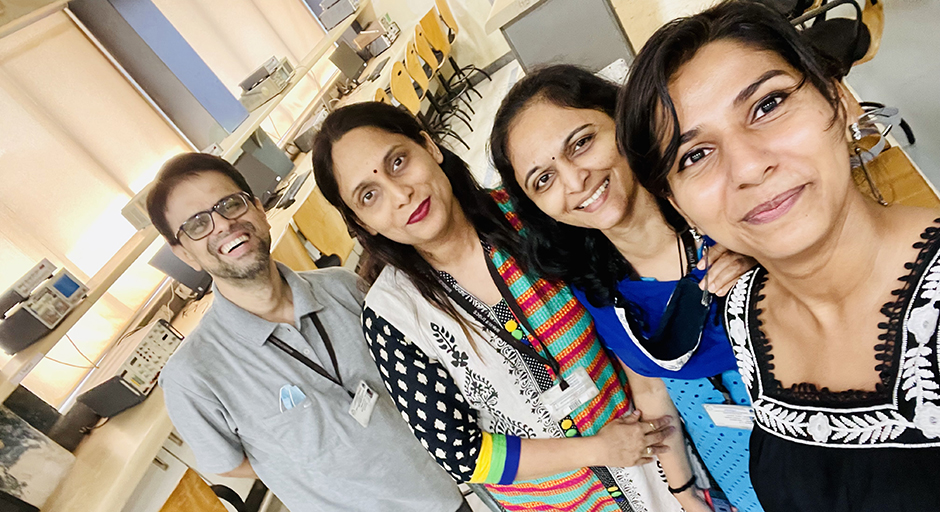JTC 24: No Longer Invisible
Doctoral student Shefali Pawar shines through her research
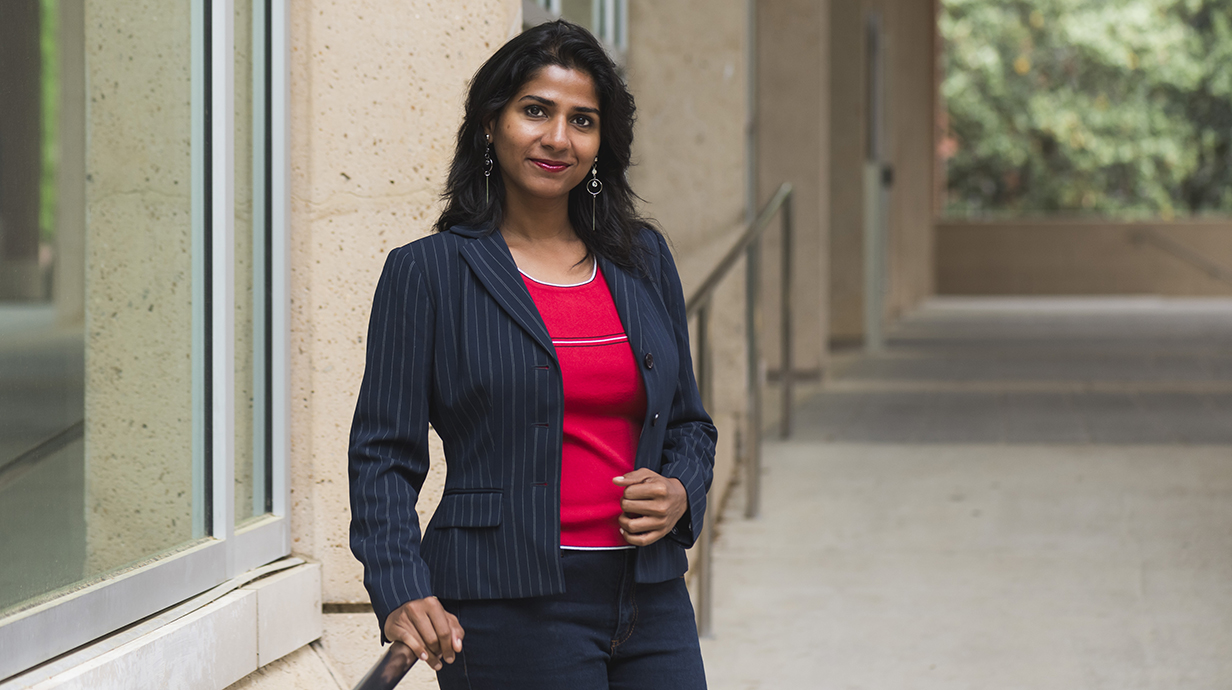
This story is part of the 2024 Journey to Commencement series, which celebrates the pinnacle of the academic year by highlighting University of Mississippi students and their outstanding academic and personal journeys from college student to college graduate.
OXFORD, Miss. – What do antennas and Harry Potter have in common? To Shefali Pawar, the answer is clear: invisibility cloaks.
Pawar, an electrical engineering doctoral candidate at the University of Mississippi, has focused her research on cloaking antennas. This cutting-edge idea solves the problem of signal interference when antennas are placed close together.
"It's like Harry Potter's invisibility cloak, the difference being, it won't make the antennas visibly disappear," Pawar said. "It does, however, make the radiation signature of the cloaked antennas disappear for the other antennas, at an intended frequency."
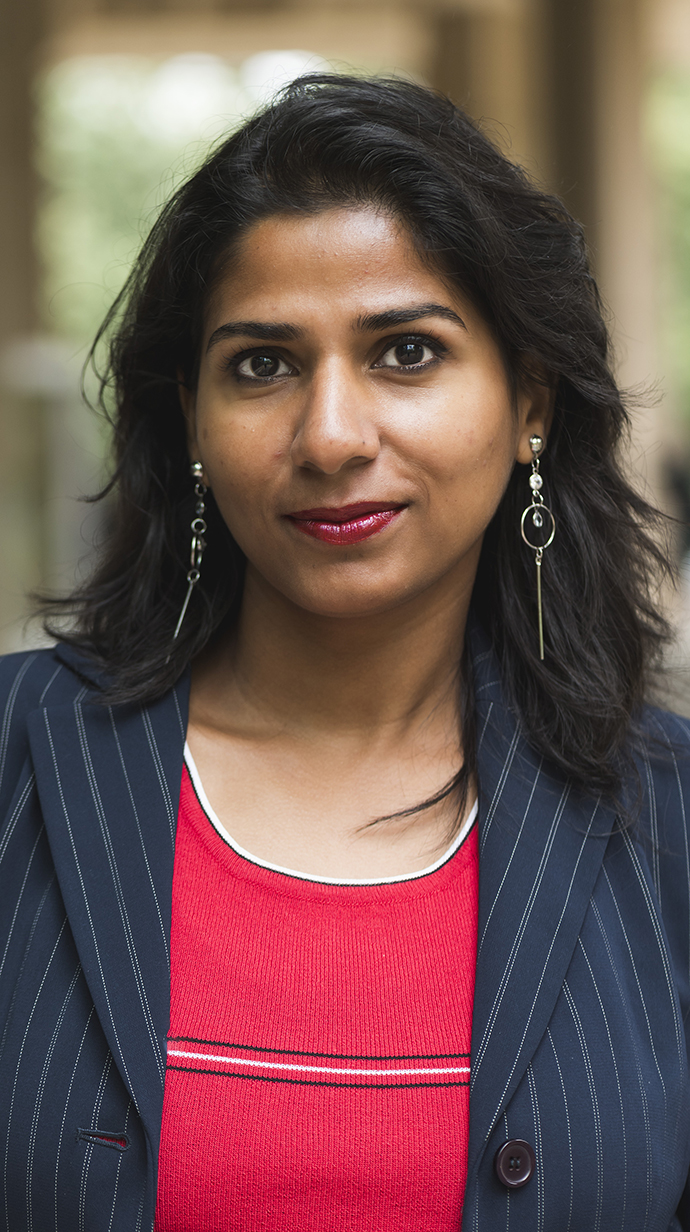
Shefali Pawar, who has been working to solve the problem of signal interference when antennas are placed close together, has completed her doctorate in electrical engineering at the university. Photo by Srijita Chattopadhyay/Ole Miss Digital Imaging Services
Antennas are the "unsung heroes" of the wireless communication that powers our modern world, she said. They are an integral part of nearly every aspect of daily life – from cell phone calls and video chats to smart home devices and streaming services.
Not only has Pawar's research itself been successful, but she has also won several competitions based on her work. She won first place in the doctoral category of the Graduate School's Three Minute Thesis Competition in fall 2023. She also won the top prize in multiple poster competitions in the School of Engineering.
Ramanarayanan Viswanathan, professor and chair of the electrical and computer engineering department, said one of Pawar's greatest strengths is her ability to communicate her research.
"She can really eloquently present her research in a variety of formats," Viswanathan said. "She does an excellent job explaining the work, whether in three minutes, like during the Three Minute Thesis competition, or in an hour and a half, like her dissertation. That ability led to her success in winning the 3MT competition and many poster competitions as well."
Hailing from Mumbai, India, Pawar received her bachelor's and master's degrees from the University of Mumbai. She received a full ride to Ole Miss for her doctoral degree, which she said was "a huge deal" and the primary reason she came to Mississippi.
Upon arriving in the United States, however, Pawar said she struggled with self-worth and feeling like she was unable to live up to expectations. It was during the height of the COVID-19 pandemic, and Pawar was unable to be physically present in the lab.
"I was working every day, but there was no productivity in it," she said. "There was a point where I thought I wouldn't be able to go forward with my Ph.D. – and that really stressed me out."
It is now my time to pay forward and I think I have the ability to help people through their own challenges."
Feeling isolated, like much of the world during the time, Pawar sought out connections in an unfamiliar town. What she found was an unexpected family.
"These people were just random individuals that I met walking around the Square," she said. "I exchanged numbers with them.
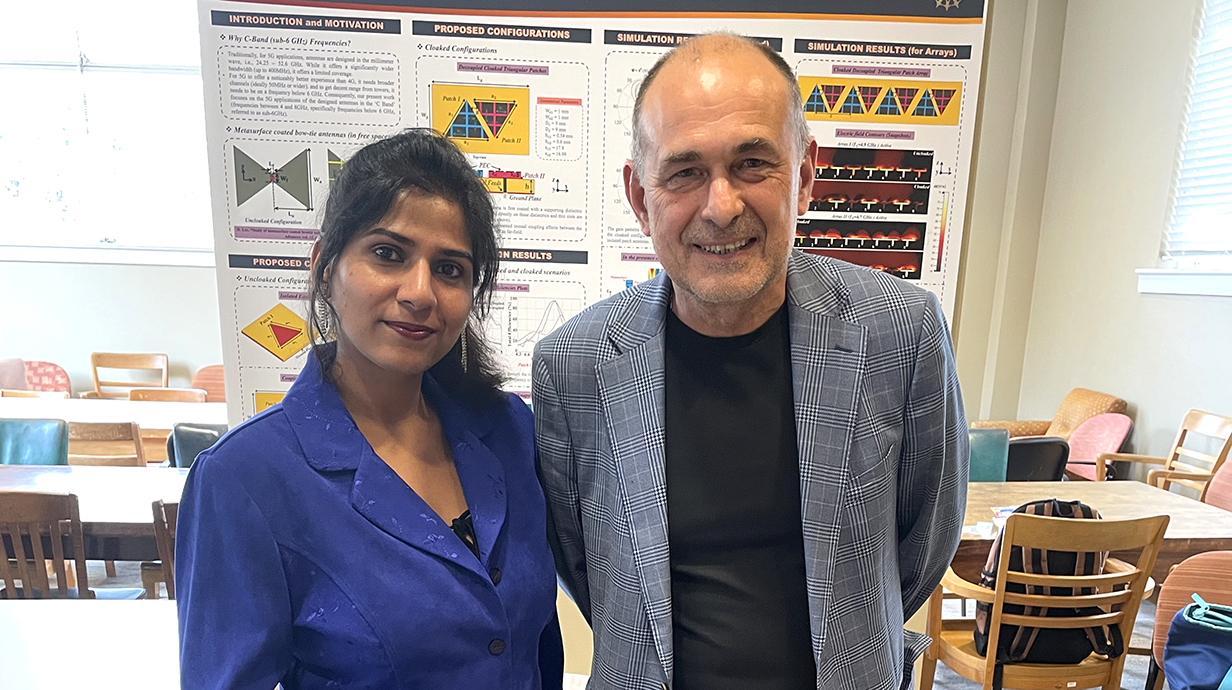
Shefali Pawar (left) spends time with Alexander Yakovlev, her Ole Miss graduate adviser and professor of electrical and computer engineering. Submitted photo
"My new Oxford friends, Kayla Stevens and Brandon Woodall, played an incredibly important role in my life at the time. They supported me and boosted my morale. They would tell me, 'You want to cry, then cry – just don't give up.' I know it sounds like a small thing, but it was very important."
Pawar credited them in her dissertation acknowledgements for helping her through that difficult phase. That experience changed her outlook on life and what it means to achieve. While Pawar has high ambitions for her research, her top priority is to help people in need.
"I want to use my expertise to give back to society," Pawar said. "I'm not just saying society in a broad, general sense, but if I could help even five people, that would be an achievement for me.
"I received help when I was down; through which I was able to navigate the most difficult periods in my life. It is now my time to pay forward and I think I have the ability to help people through their own challenges as well."
As she moves on from Ole Miss, Pawar is poised to accomplish both her research and personal goals as she begins a career in academia. She has accepted a faculty position with West Texas A&M University and will begin this fall.
"I'll be in Canyon, Texas, beginning my life as a professor," Pawar said. "I'll continue my research regarding the invisibility cloaks and will have the opportunity to collaborate with multiple labs.
"My long, long-term goal is to have a business someday where I can develop technologies that will somehow play a key role in the amelioration of our society."
By
Erin Garrett/University Marketing and Communications
Campus
Published
April 25, 2024


